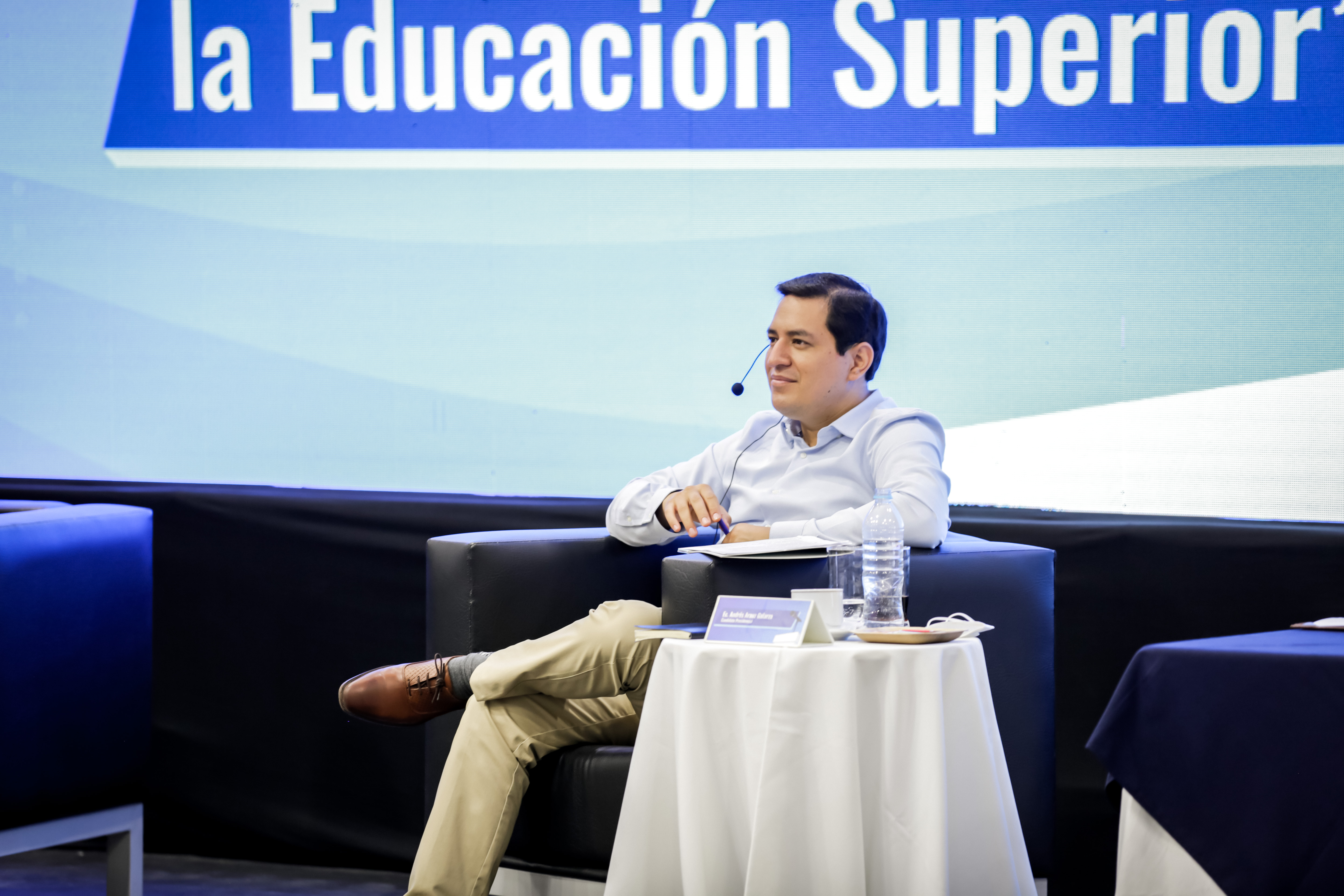For our third Open Future Session, we invited Andrés Arauz – the Minister of Knowledge of Ecuador in 2015-2017. Andrés told us how the Ministry established a policy to build a “social knowledge economy,” which translated into multiple actions supporting, in particular, a knowledge commons.
In 2008, a new Constitution was written and approved by the citizens of Ecuador. The Constitution established the principle of “Buen Vivir” – “a good way of living” as the main principle guiding state action. The principle was also an alternative growth model to the one that is globally dominant and based on GDP growth. In the following years, a set of new knowledge, education and cultural policies were introduced as part of a progressive “knowledge policy”.
In 2015, the newly formed Ministry of Knowledge coordinated work in the areas of education, science and research, as well as culture, heritage and arts. The underlying assumption was that knowledge development is necessary for effective State’s sovereignty. This includes incorporating knowledge from abroad, developing own capacities – for example for technological improvements – but also caring for ancestral wisdom.
The Buen Vivir model is based on a vision of harmonious relationships not just among humans, but also with other species, future generations, and the planet. The role of the Ministry of Knowledge was to translate this vision into specific policies that focused on ensuring sovereignty, providing access to and decolonizing knowledge in Ecuador.
In the international context, this increasingly translated into renewed work on intellectual property rules, which were established by trade agreements that Ecuador is party to. At that time, Ecuador signed the Marrakesh Treaty – which facilitated access for the blind – and ratified the Ministerial Declaration of TRIPS flexibilities – which provided access and use rights for education, but also concerning health and medicines. Ecuador also secured, through a critical negotiation of a trade agreement with the EU, the technological disaggregation right, supporting the use of generic, locally manufactured parts for foreign equipment. 27 different bilateral treaties were terminated, ending abusive protection clauses for foreign holders of knowledge and intellectual property. Finally, a “social knowledge economy” law took advantage of every intellectual property flexibility available to Ecuador, based on international rules.
Andrés argues that the vaccine apartheid that we face today, as the WTO fails to introduce a TRIPS Waiver for COVID-19 vaccines, is only the latest and most visible of a series of similar “apartheids”, which have been occurring for decades. Ecuador faced similar challenges with regard to respirator technology, orphan drugs, testing kits, and many other biochemical technologies. In each case, technological dependence was created as multinational corporations exerted their power on small countries. Access to specific intellectual property was given under the condition of agreeing to exclusive sales of supplies for a predetermined time. As a result, this makes it impossible, for example, to develop cheap, generic alternatives to technologies, such as medicines. Andrés explained how an updated regulatory framework reduced the price of medicines by 70%, in the timespan of just two years.
The Ministry of Knowledge also supported an open knowledge model, with knowledge commons being a key element of the “social knowledge economy”. The Ministry developed the “Buen Conocer” approach, which gave priority to knowledge and technological solutions that were free/open, and often developed together with citizens and local communities. As part of this process, Ecuador was also shifting its public sector – starting with schools – to free and open software solutions. The Ministry also experimented with open innovation, for example by organizing a first-of-its-kind hackathon for Ecuador’s digital currency.
The Buen Conocer strategy was also based on a decolonial perspective. Firstly, a set of policies aimed to protect language diversity. Andrés reminded us that English is ultimately the fringe language in the world – and from that perspective policies need to be built that make knowledge available in Spanish, and in other local languages. This translates into projects ensuring that local language interfaces are available for software or search engines. Their final goal is to develop ‘linguistic symmetry’, so that language can be produced, archived, accessed and shared in local languages, and not just in English, which is often the dominant language – especially in the spheres of global knowledge and technological production.
Another part of this strategy was a commitment to the open government model, as a means of ensuring access to knowledge, but also accountability and the democratization of lawmaking. Ecuador was also aiming for WIPO to recognize derivatives of local biodiversity and ancestral knowledge – so that economic remuneration for the use of these derivatives would be possible. This is, again, a means for securing the sovereignty of local knowledge and traditions, which often are part of ancestral, indigenous wisdom. Without these rules, local communities do not see economic profits from the use of, for example, plants, from which great corporations gain, often through extractive practices.
In his response to Andrés talk, Paul Stacey from Open Education Global, stressed the fact that the work of the Ministry of Knowledge is an important example of how macro-level policies, including knowledge policies, can, with proper coordination and leadership, be translated into specific actions, with effective benefits being visible to citizens. He also highlighted the importance of the decolonial perspective. At a time when Big Tech companies are increasingly imposing their technologies and rules, this perspective has value not just in the Global South, but also resonates in the rest of the world.





